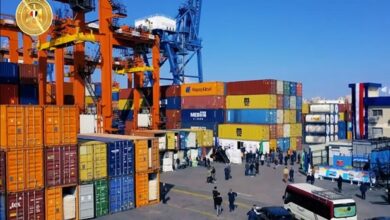President Mohamed Morsy issued a decree in late March that increased custom duties on 100 luxury products, an unsurprising move as the country struggles to boost revenues and shrink its widening budget deficit.
Food products such as pineapples, caviar, shrimp, avocados, melons, nuts and chewing gum will be affected by a price increase ranging from 5-40 percent. Other products such as sunglasses, boats, videogames and watches will also see price hikes.
The government also imposed a 20 percent tax on all equipment imported by touristic establishments, with the exception of automobiles. Customs duties on cars running on gas and electricity will drop by 25 percent, while spare parts for the assembly industry will also see lowered tariffs.
While it could be argued that any extra revenues will help the ailing economy, some analysts doubt this measure will benefit the economy in any meaningful way.
“This is too little, too late,” says Samer Attalah, an economy professor at the American University in Cairo.
Replenishing foreign reserves?
Customs Authority head Mohamed al-Salhawy said that Egypt expects around LE1 billion in revenues from the raised tariffs on select commodities, with a goal of replenishing depleted foreign reserves that have reached critically low levels.
The government also hopes to limit foreign currency outflows for the purchase of non-essential products.
“Maintaining foreign reserves is the number one objective," says Attalah.
Weak foreign reserves along with a growing deficit are only worsened in the context of unstable political and security conditions, all of which have considerably weakened the nation’s position on the global market.
Moody’s recently downgraded Egypt's credit rating for the sixth time, predicting a 40 percent chance of debt default within five years. As a result, the government is finding it increasingly difficult to purchase vital commodities, namely wheat and fuel.
In turn, it has looked to neighbors for help securing key imports, such as Libya and Qatar. Government officials’ recent trips to Iraq and India also aimed at ensuring a viable supply of petroleum and wheat imports.
Meanwhile, negotiations over the International Monetary Fund loan have resumed, with Egypt likely to ask for more than the US$4.8 billion that has been under discussion since the new government came into power. Officials have said that the loan may come through by the end of April, though analysts remain skeptical that the loan could be secured before an elected parliament is seated.
While it may be difficult to push through unpopular tax rises and subsidy cuts without angering the electoral base, increasing taxes on luxury products is, in comparison, a socially painless measure.
But the timing of the move has been called into question.
“There would not have been a problem in implementing such a measure in early 2011, while foreign reserves were still at a high level," says Attalah. “But with the current situation, each economic measure is closely scrutinized and interpreted by the markets.”
Markets may interpret the raised tariffs as another rushed measure, which may further deter business and investment in the country, without generating sufficient revenues to restore public accounts.
Hotels and restaurants are the biggest consumers of luxury products such as shrimp or avocados, while boats are mainly bought by resorts or diving centers off the Red Sea coast. These tariff increases will hit the tourism sector hard, which was one of the first economic areas to suffer since the 2011 uprising, and has yet to see any signs or recovery.
According to the Central Agency for Public Mobilization and Statistics (CAPMAS), there have been 20 percent more tourists in 2012 than in 2011, with 11.5 million visitors versus 9.8 million. The first 2013 figures showed a small increase compared to 2012, but it's still a far cry from the 14.7 million of visitors of 2010.
Cairo and Luxor have not been as lucky, and have seen occupancy rates continue to drop drastically.
"It is pain, without much gain," says Galal Abu-Gadala, owner of Gourmet, a major distributor of luxury food items.
His company makes the bulk of its sales to upscale hotels and restaurants.
“Even if they are just a drop in the ocean, these new tariffs will make the situation even more difficult," he says.
The new taxes will make hotels less competitive on the international market and could deter tourists from visiting Egypt or international events from being held in the country, Abu-Gadala speculates.
If the overall impact of the measure remains hard to predict, critics believe it is exactly this unpredictability and lack of a long-term vision that is most damaging.
“I am not against the measure itself, but I believe it comes at the wrong time, and it is not sufficient," says Attalah.




